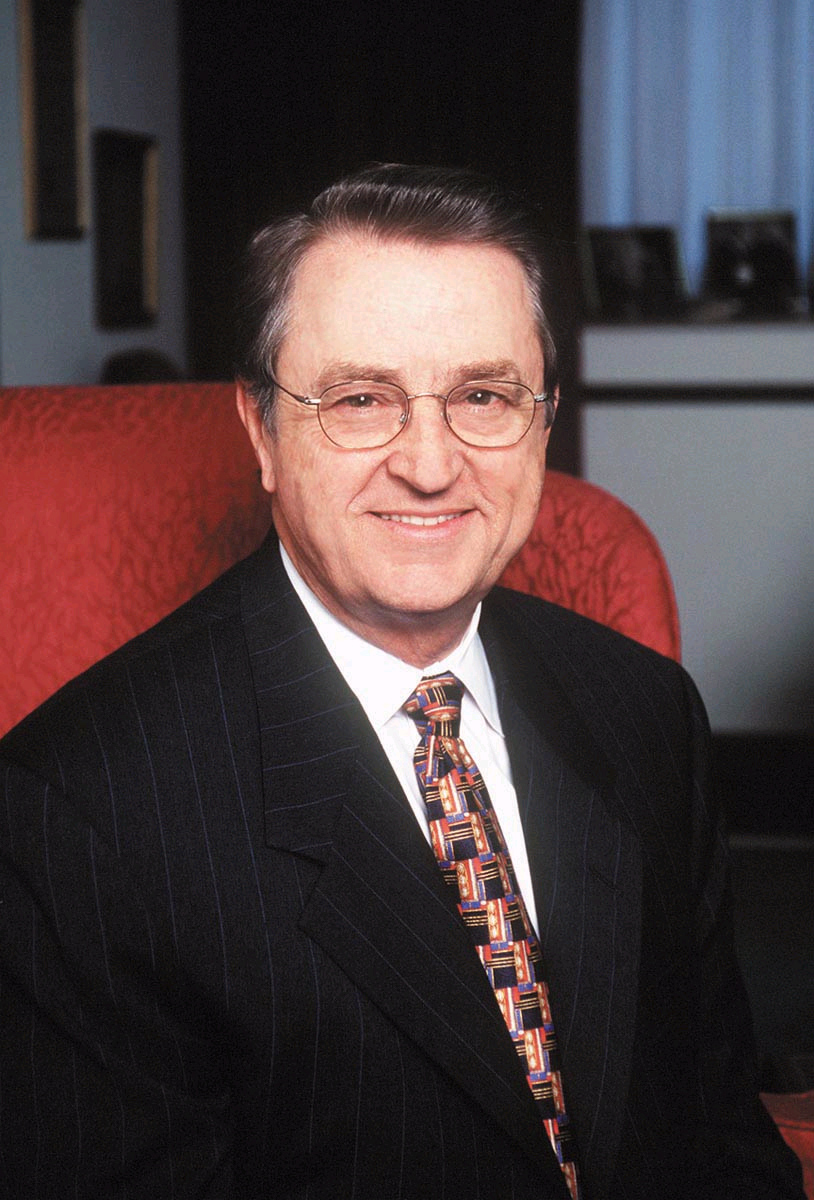
EDITORS’ NOTE: Today is the second day in a week-long series of columns on biblical doctrine by former LifeWay Christian Resources President Jimmy Draper. The series coincides with “Baptist Doctrine Study” week within the Southern Baptist Convention.
NASHVILLE, Tenn. (BP)–Recently there’s been much discussion about the issue of tongues in Southern Baptist life. I know individuals who believe in the gift of tongues and know that they love the Lord and His Word. So with what I write I am not attacking anyone. I only endeavor to summarize the scriptural teaching on this matter.
Primary passages in two books — Acts and 1 Corinthians — describe the gift of tongues. One resulted in thousands being saved, the other in confusion and problems in the church. In Acts 2 the apostles and about 120 other disciples were gathered in a room near the temple when the Holy Spirit filled these believers and they began to praise God in other languages. People had gathered from 15 different provinces, yet each person heard the words of praise to God spoken in his or her own dialect.
In Acts 10, Cornelius — the first Gentile convert — had a similar experience but without all of the supernatural manifestations. Several years later in the city of Ephesus the Apostle Paul met 12 believers in Christ who had been led to the Lord by a follower of John the Baptist. They had an incomplete understanding of the Gospel, so Paul instructed them, baptized them and placed his hands upon them. The Holy Spirit came upon them and they spoke with languages and prophesied (19:6).
Each of these instances involved individuals speaking in a known language they had not learned. Their speaking was understood by those who heard them. No evidence is found that anyone sought or prayed for the gift of speaking in other languages. Every occurrence was the spontaneous work of the Holy Spirit. The fact that this phenomenon was not mentioned in all of the other great experiences recorded in Acts shows its lack of importance as an ongoing ministry.
The emphasis in Acts is not on the gift of tongues, but the filling of the Holy Spirit in believers. That filling revealed the continuous control that the Holy Spirit exercised over the disciples so they could witness in power (1:8).
In the 22 books of the New Testament that follow Acts, only 1 Corinthians mentions tongues. These 22 books contain 143 chapters, yet only three chapters make any reference to this gift, and only one chapter treats the subject in detail. Whatever we may deduct from this, it certainly means that speaking in tongues was not a major factor in the spread of the Gospel or in the practice of the apostolic church.
Additionally, when Paul listed the spiritual gifts in Romans 12 and Ephesians 4, he did not mention speaking in tongues. Believing that the Holy Spirit has inspired every word of the Bible as He spoke through the writers, we must conclude that the gift of tongues was either not a matter of importance, or that it was not practiced by the Christians in Rome, Ephesus and elsewhere.
In the three chapters in 1 Corinthians several things emerge regarding gifts that need to be noted. No one is left out. Everyone is given a spiritual gift or gifts. They are not rewards for spiritual maturity and achievement. It is not the normative experience for all believers. Chapter 12 clearly teaches that the gifts are divinely distributed and work for the good of the entire body of believers. They are designed to prepare a people to function as a witnessing community.
Another thing is abundantly clear in this passage. The abuse of tongues was a problem in the church in Corinth. Care was given to regulate and restrict the use of tongues in the church and not to encourage their use. Clearly it teaches that no believer has all of the gifts and none of them are equated with the infilling of the Holy Spirit. Paul used a distinctive negative participle in all of the questions asked in 1 Corinthians 12:29-30 which indicates that the answer to each one was “no.” None of these gifts is bestowed upon all, nor are all bestowed upon any one individual. The great apostle concludes in verse 31 that the Corinthian believers should “desire the greater gifts. And I will show you an even better way.” The better way is love, according to chapter 13.
In chapter 14, Paul provides restrictions for the use of the gift of tongues and in-depth instruction on how to correct abuses found in the church. The key is found in the last verse of this chapter when we read, “But everything must be done decently and in order.”
Paul noted something positive about the gift of tongues, but each time he did so he followed the positive with a qualifying statement. For instance, he wrote in verse four that tongues edifies only the person speaking, but follows that with the better alternative. It is best, he wrote, to do what builds the body of believers. In verse five he expressed a desire that all of the Corinthian believers should speak with other languages, but he desired even more for them to prophesy. That is, he wanted them to expound the Word of God in a language that was understandable. Paul saw this act of proclaiming the Gospel as being far superior to speaking in other languages. Though he spoke in languages more than those in Corinth, he wrote that he would rather speak five words with understanding than 10,000 in another language (14:18-19).
Careful restrictions were given on the exercise of the gift of tongues in these chapters. Here are just a few. The gift of tongues should not be exercised in the presence of unbelievers (14:23). Only one person at a time is to speak and not more than three in one service and an interpreter must always be present (14:27). This must not cause confusion among believers (14:33). Women are not to speak in tongues at any time in the church (14:34-35). This was probably because it would be too similar to the temple prostitutes’ ecstatic frenzies as they practiced their pagan, immoral rituals. In no way does this mean that women cannot teach or speak in church. That issue was settled in 1 Corinthians 11:3-10 when Paul gave instructions to the women as to how they were to dress when they prayed or prophesied in the church.
One thing is clear: pre-occupation with tongues-speaking is childish (14:20). It was a problem with the immature and carnal Christians in Corinth. These chapters were not given to recruit people to speak in tongues, but to correct, control and restrict the use of the gift.
All spiritual gifts are divinely bestowed by our sovereign God. He can give the gifts as He pleases and to whom He pleases. No one can “develop” a gift or be “taught” how to exercise a gift. This gift must not be a test of fellowship, but it must be restricted and regulated by Scripture under the authority of the ministers of the church. It should not be a reason for disfellowship unless the one practicing the gift uses it in a way that promotes confusion and disharmony.
We must remember that nowhere in Scripture is anyone commanded to speak in tongues. Gifts are sovereignly bestowed individually by God. The church must be a ministering church expressing love as the greatest gift, “the even better way.”
–30–
Jimmy Draper is the former president of LifeWay Christian Resources.














